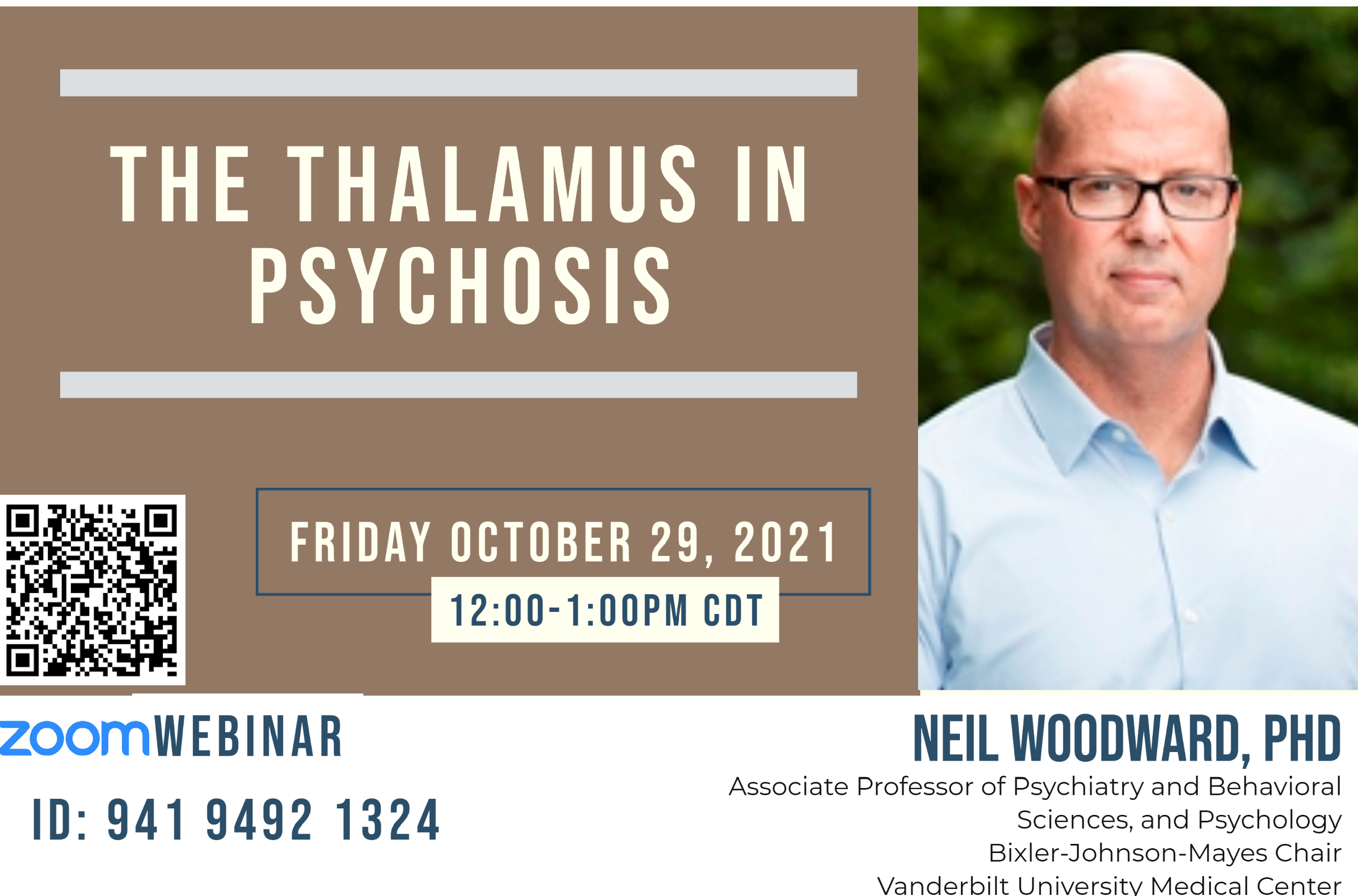
"The Thalamus in Psychosis"
Abstract
Dr. Woodward will review his research studying thalamic abnormalities in psychosis. Neuroimaging studies characterizing thalamic abnormalities in psychotic disorders and youth with psychosis spectrum symptoms, as well as normal development of thalamic circuitry will be reviewed. He will conclude his talk by discussing how recent advances in the fundamental neuroscience of thalamus can be used to improve our understanding of the neural-basis and treatment of cognitive impairment in psychosis.
Objectives
The activity is designed to help the learner
- Explain thalamic abnormalities in psychotic disorders;
- Describe the development of thalamic structure and connectivity;
- Discuss thalamic contributions to cognition, including working memory and attention.
About the Speaker
Dr. Woodward obtained a PhD in Clinical Psychology at Vanderbilt University. After completing an internship in Clinical Neuropsychology, Dr. Woodward joined the Department of Psychiatry and Behavioral Sciences at Vanderbilt University as a Postdoctoral Research Fellow in 2007. He has been a member of the faculty at Vanderbilt University since 2009.
Dr. Woodward studies the neural basis of psychotic and neurodevelopmental disorders. His research focuses especially on brain connectivity and the neural correlates of cognitive impairment in psychosis. His research is supported by the National Institute of Health, the Bixler-Johnson-Mayes endowment, and the Charlotte and Donald Test fund.

This talk is sponsored by the Department of Psychiatry and Behavioral Sciences. This educational activity received no commercial support.